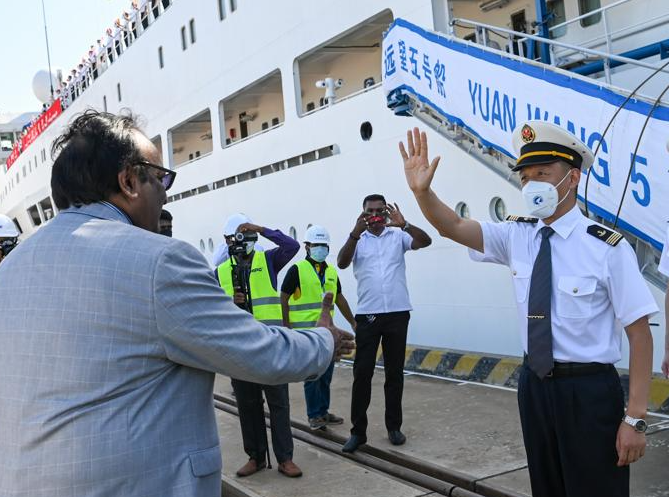
(Photo of Sri Lanka's president accepting Indian aircraft)
Writing in The Diplomat, Viruben Nandakumar stresses the need for Indian diplomats to end a policy of appeasement and soberly reflect on the currents of Sinhala Buddhist nationalism, which prohibit further integration between India and Sri Lanka.
In his inaugural speech, Sri Lanka’s current President Ranil Wickremesinghe signalled a shift in foreign policy to favour relations with India by praising their aid efforts and lamented on cancelled investment projects. Indian investment projects were abandoned for “baseless reasons”, claimed Sri Lanka’s president.
Yet, Nandakumar argues that these cancelled projects are symptomatic of a chauvinistic ethos that animates Sri Lanka’s foreign policy. Sinhala Buddhist nationalism views, Indian engagement as an existential threat and has sought to keep the country at arm’s length despite Sri Lanka’s dependency on India.
During the early 1970s, Sri Lankan Prime Minister Sirimavo Bandaranaike relied on Indian support to crush the Marxist insurgency of the Janatha Vimukthi Peramuna (JVP) but at the same offered aid to Pakistan, which was at war with India over East Pakistan, now Bangladesh. Whilst India provided naval and air support to the Sri Lankan government, that same government would allow Pakistan’s air force to refuel at Bandaranaike Airport on its way to the theatre of East Pakistan.

(Photo of former state minister Sarath Weerasekara welcoming Chinese military vessel)
This policy of deliberate duplicity was on show this past week as Sri Lanka entertained both Pakistan’s navy in military exercises as well as a Chinese spy ship, despite Indian protests.
The insular nature of Sinhala Buddhist nationalism has led Sri Lanka to block moves to integrate India with the Tamil North-East which has suffered from chronic underdevelopment. In contrast, resources have been funnelled to the Sinhala South through the form of “white elephant projects” which have produced little in return.
India’s approach to Sri Lanka has done little to rebuke Sinhala Buddhist nationalism other than to voice support for the 13th Amendment which produced a system of provincial councils. Sri Lanka has repeatedly refused to implement this agreement over the decades with the current Sri Lankan High Commissioner to India decrying the councils as “superfluous, expensive, divisive.”
Tamil leaders have questioned the utility of such a proposal in which these councils would still be subordinate to the powers of the presidency. Instead, there has been a consistent call for self-determination realised through a federal structure and secular constitution.
Indian officials cannot continue a policy of appeasement but must instead reflect on their relationship with Sri Lanka.
“While the island has been happy to lean on India when it is backed into a corner, an underlying chauvinist ethos prohibits integration. For as long as it remains unchallenged, India will continue to engage with a Janus-faced administration in Colombo. Continued appeasement comes at India’s own peril” writes Nandakumar.
Read the full piece at The Diplomat.
We need your support
Sri Lanka is one of the most dangerous places in the world to be a journalist. Tamil journalists are particularly at threat, with at least 41 media workers known to have been killed by the Sri Lankan state or its paramilitaries during and after the armed conflict.
Despite the risks, our team on the ground remain committed to providing detailed and accurate reporting of developments in the Tamil homeland, across the island and around the world, as well as providing expert analysis and insight from the Tamil point of view
We need your support in keeping our journalism going. Support our work today.
For more ways to donate visit https://donate.tamilguardian.com.

